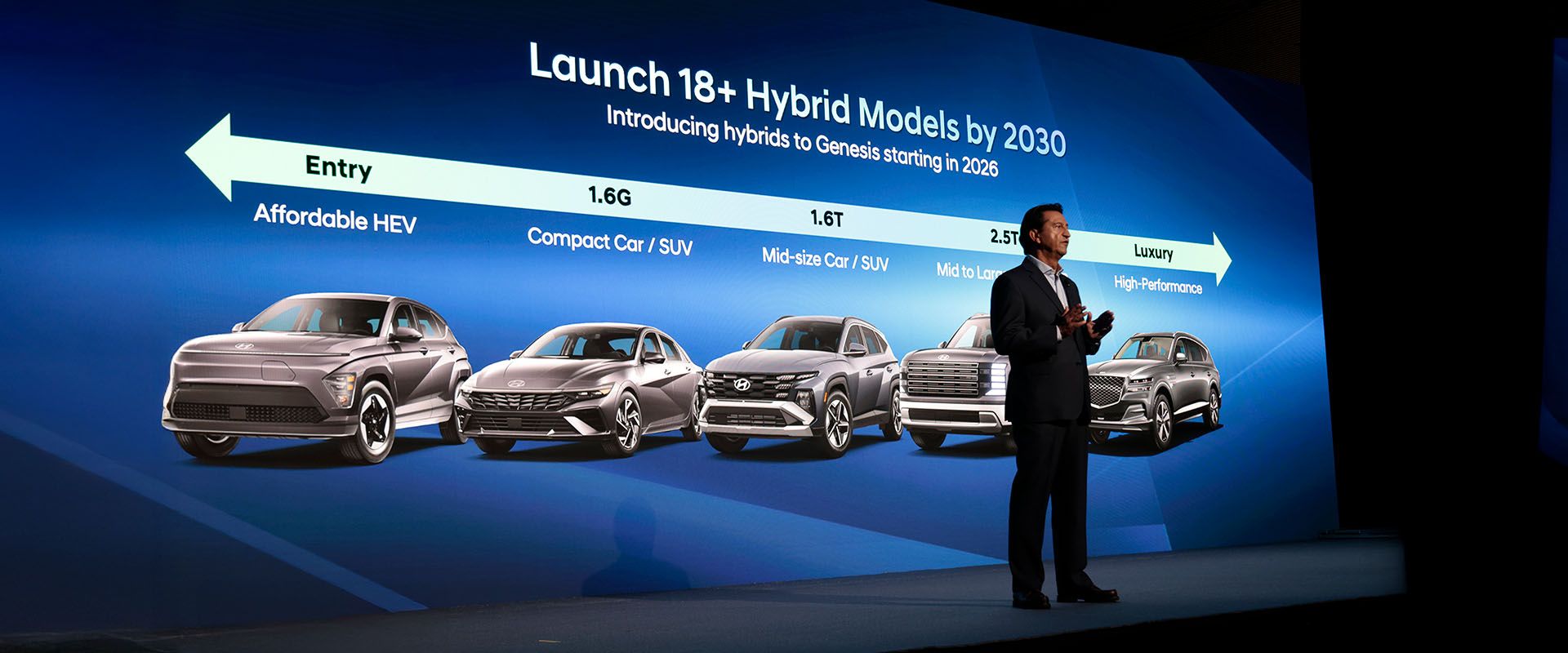/saur-energy/media/media_files/2025/09/19/hyundai-2025-09-19-11-59-00.jpg)
Hyundai Plans To Add 250,000 EV Units In India By 2030 Via Pune Export Hub
Hyundai announced an investment plan to reach a total production capacity of 500,000 units by 2028, in August, with global manufacturing innovation and expansion focused on hybrid and electric vehicles.
Hyundai Motor Group Metaplant America (HMGMA), while sharing these plans, estimated the project would create 3,000 direct and indirect jobs in Georgia and involve a USD 2.7 billion investment over three years. Currently, it aims to produce more than 80% of vehicles sold in the United States domestically by 2030, with supply chain content rising from 60% to 80%.
Global Expansion Plans
Globally, Hyundai plans to accelerate its production capacity by adding 1.2 million units by 2030. This includes 500,000 additional units from HMGMA, 250,000 units from the Pune multi-model export hub in India, and 200,000 units from the dedicated EV plant in Ulsan.
Additionally, Hyundai said its CKD sites in Saudi Arabia, Vietnam, North Africa, and other countries are expected to contribute another 250,000 units. Notably, the Saudi Arabia plant, scheduled to begin operations in the fourth quarter of 2026, will feature next-generation robotics and localized manufacturing under the Saudi Made initiative, with a production capacity of 50,000 units.

In the United States, HMGMA plans to produce a mix of 10 hybrid and EV models, while the new Ulsan EV plant will manufacture up to 12 EV models using advanced robot-based automation systems, enabling predictive maintenance, digital simulation, and self-diagnostics.
Sharing Hyundai Motor's electric vehicle (EV) strategy for regionally tailored products designed for specific markets, the company noted:
The IONIQ 3 will target European mass-market customers with next-generation infotainment systems.
India will receive its first EV designed specifically for local drivers, supported by a localized supply chain.
China will get the locally produced Elexio SUV and a C-segment electric sedan, marking a major milestone in Hyundai Motor's commitment to the Chinese market.
Advanced Technology Acceleration
Hyundai Motor’s battery strategy aims to deliver industry-leading improvements by 2027: a 30% cost reduction, 15% higher energy density, and 15% shorter charging times. It aims to strengthen EV competitiveness. It also leads the industry in fuel cell technology, with 73,000 cumulative fuel cell electric vehicle sales. The company is developing next-generation fuel cell systems for commercial-exclusive applications, offering high efficiency, durability, and power output to meet future mobility demands.
Target Revenue
Hyundai Motor’s target revenue has been revised upward by 5–6%, reflecting an increase of 2 percentage points from the January announcement. The company adjusted its operating profit margin (OPM) target to 6–7%, down 1 percentage point, citing the impact of newly imposed United States tariffs.
Hyundai Motor announced a KRW 77.3 trillion investment plan over five years from 2026 to 2030, up KRW 7 trillion from last year’s guidance. The investment breakdown includes KRW 30.9 trillion for Research and Development (R&D), KRW 38.3 trillion for Capital Expenditure (CAPEX), and KRW 8.1 trillion for investments. The company explained that this investment aims to strengthen global competitiveness through software talent development, expansion of localized capacity, and investment in strategic areas, including future technologies.
To accelerate localization and improve profitability, the company said it plans to invest KRW 15.3 trillion to expand production capacity and establish a robotics ecosystem in the United States, as part of Hyundai Motor Group’s broader USD 26 billion commitment in the country.
Hyundai Motor further said it aims to achieve a sustainable operating profit margin of 7–8% by 2027 and 8–9% by 2030 through an improved product mix — including hybrid and Genesis models — along with its localization strategy and enhanced cost efficiency.
/saur-energy/media/agency_attachments/2025/06/20/2025-06-20t080222223z-saur-energy-logo-prasanna-singh-1-2025-06-20-13-32-22.png)
 Follow Us
Follow Us